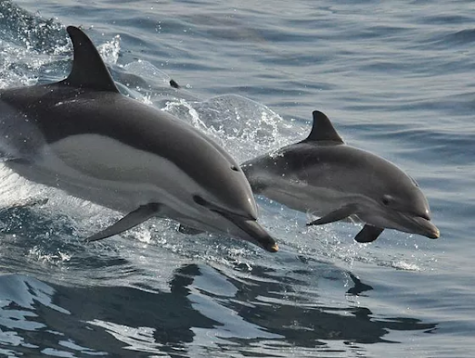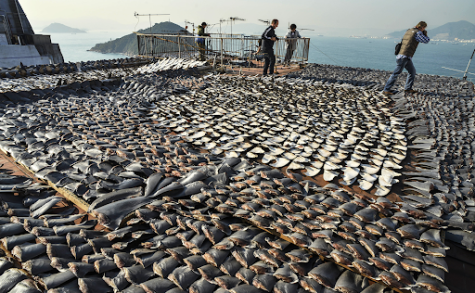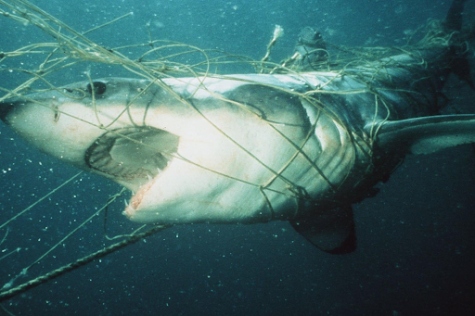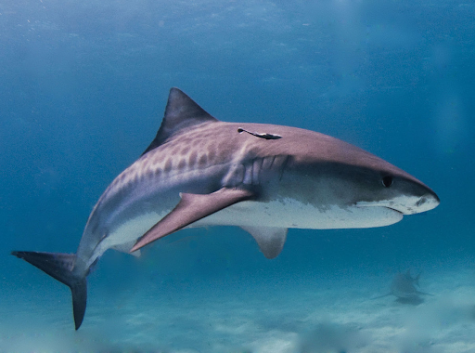Our Oceans Are Dying
Feb 4, 2022

The shores of Skálabotnur Beach were red.
On September 12, 2021, 1,428 Atlantic White-Sided Dolphins were brutally slaughtered in the Faroe Islands, Denmark, in a yearly event called “The Grind.” According to Sea Shepherd, a global marine conservation organization, this is “the largest single hunt of dolphins or pilot whales in Faroese history.” Due to the sloppy nature of the killings, most of this meat is contaminated and unfit for human consumption. The result is more meat is harvested than the islands could eat, which means the dolphins were slaughtered for no reason.
Locals of the Faroe Islands found this year’s Grind to be senseless, including the former chairman of the Grind.
Atlantic White-Sided Dolphins, while a protected species in the United States, are not considered endangered. Nevertheless, The Grind is more than a tradition this year; It was a massacre. It calls into question the necessity of events like the Grind.
Out of 41 dolphin species, five species and six subspecies are listed as endangered by
As humans, we are doing something fundamentally wrong to cause these statistics. According to the IUCN’s list, the primary cause for marine species extinction and endangerment is overfishing. the IUCN Red List. According to this same list, 37% of all shark and ray species are actively faced with extinction. 33% of coral species are endangered, as are 28% of select crustaceans.
No species illustrates this better than the shark.
According to MarineBio, in 2010, in Kesen-numa City, Japan, 75 tons of dead blue sharks were put in piles on the dock. Underpaid workers removed the shark fins with a knife, and the bodies were hauled away with an excavator. The fins go in soup and sushi.The liver produces squalene, which goes into your makeup and skin cream, as well as some medications. The rest of the shark’s body is dumped back into the ocean or into a landfill.

This happens six days a week, all year long. Sometimes it’s blue shark, other times, it’s shortfin mako or salmon shark.
Sharks are a keystone species. As the apex predator in the marine ecosystem, they are responsible for maintaining a balance in the prey
population. Certain shark species, such as tiger sharks, are opportunistic hunters. They eliminate diseased and injured prey, leading to the development of a healthy prey population.
Of course, directly fishing sharks isn’t the only cause of their decline. Sharks also are caught as fishing

bycatch, or unintentionally catching sharks when fishing for other species. Oceana estimates “tens of millions of sharks are caught as bycatch each year.” Sometimes, these sharks are killed anyway for their valuable fins. But even if released, sharks often fall victim to post-release mortality, which happens when animals die from stress or injuries. According to Oceana, 80% of dusky sharks alone die from post-release mortality.
The point is not to cease fishing. To ask that would be an impossibility. But with proper research, such as reading the temperature of the water to determine where sharks will be, bycatch can be reduced significantly.
If we continue on like this, there won’t be any marine life to worry about. They’ll be gone. In 2006, marine researcher Boris Worm predicted that there would be no fish left by the year 2048. In a mere 27 years, we could face a global crisis. Without marine life, the world not only loses a food source, but the water could become contaminated, as fish help filter the ocean water. According to Greentumble, an environmentalist group, the algae would become out of control and take over. The Earth would break down.
Our oceans are actively dying. If you weren’t aware of that, it’s time to get on board and spread awareness to this issue.
Organizations you could donate time and money to are listed below.

Shark Angels, Oceana, Sea Shepherd, Shark Research Institute, MarineBio, White Shark Projects, Coral Reef Alliance, Ocean Conservancy, Whale and Dolphin Conservation.



